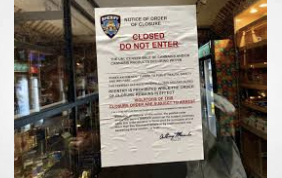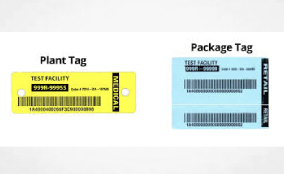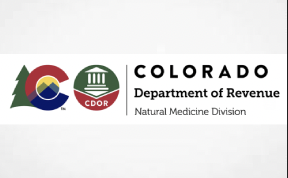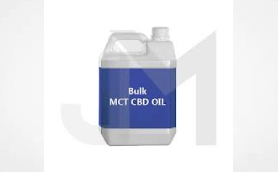Last year, the Tennessee legislature passed a law that contained many new requirements for the hemp industry. As of July 1, 2024, that law is effective and Tennessee’s Department of Agriculture (the “department”) established new emergency regulations and a licensing program for businesses working with hemp derived cannabinoids. (The emergency regulations are also below in PDF format.) Businesses currently operating in the hemp-derived cannabinoid space in Tennessee, or those planning to do so in the future, should review these important changes and conform their business plans accordingly.
Importantly, under the new regulations, an “HDC product” means a product that contains or that is labeled to contain a hemp-derived cannabinoid and that is produced, marketed, or otherwise intended to be consumed orally (“ingestible”), inhaled (“inhalable”), or absorbed through the skin (“transdermal”). HDC products also include intermediate products intended for subsequent use as a component in a later finished ingestible, inhalable, or transdermal HDC product. Topical products mean products solely intended to be applied to the skin or hair and are not intended to be absorbed through transdermal application; topical products are not included within the definition of HDC product even if they contain a hemp-derived cannabinoid.
THCa Restricted
Although Tennessee has a reputation as being a friendly state for THCa hemp flower, the emergency regulations confirm that it is not lawful in the state if the total THC exceeds 0.3%:
Tetrahydrocannabinolic acid (THCa):
I. HDC products in commerce to an HOC product licensee (post decarboxylation THC values 5%);
II. HDC products in commerce to any person who is not an HOC product licensee (post-decarboxylation THC values 0.3%)
Licensing Requirements
The department’s licensing program opened on July 1, 2024 for retailers and suppliers of hemp-derived cannabinoid products. Licensing information, including the digital application form, is available on the department’s website. From July 1 until September 30, 2024, the department will issue licenses and conduct outreach to businesses to provide education about requirements. Department officials will then begin enforcement of license requirements on October 1, 2024.
According to the new regulations, an HDC product license is required per person per location for any person who manufactures or distributes an HDC product in commerce. Previously, in Tennessee law, “Manufacture” meant to compound, blend, extract, infuse, cook, or otherwise make or prepare products containing a hemp-derived cannabinoid, including the processes of extraction, infusion, packaging, repackaging, labeling, and relabeling of products containing a hemp-derived cannabinoid.” Now, under these new regulations, “Manufacture”, also includes any action that transforms cannabis physically or chemically beyond its principal form as a farm product or that filters, cleans, or trims that product to isolate any of its particular parts or components. “Distribute” means to transport or to introduce into commerce and includes delivery for sale or manufacturing or holding for subsequent sale or manufacturing.
Additionally, an HDC retail license is required per person per location for any person who offers for sale an HDC product at retail. Licensed locations must be fixed address facilities but may include temporary locations such as fairs, flea markets, and farmers markets, provided that license fees for temporary locations cannot be prorated on the basis of temporary use. The application requires a physical retail location.
You can join a webinar hosted by the department on July 15 at 10 a.m. (Central) by signing up here. Program leaders will provide information about the licensing process and other statutory requirements, including prevention of youth access and proper labelling of products. Registration is required to participate in the webinar.
Operational Requirements
The new regulations also contain new manufacturing requirements, including specific requirements for inhalable products. Sampling and testing requirements outline acceptable limits for various analytes and states that COAs required under Tennessee’s program may be supplied by a third-party laboratory, provided the laboratory is registered with the department.
HDC product manufacturers must, in addition to labeling requirements under the Tennessee law, label each HDC product with the following:
- Batch number;
- Name and address of the HDC product manufacturer or distributor as it is registered with the department;
- A list of all ingredients, ordered by weight, including direct and indirect additives;
- A separate allergen statement, stating common name of allergen, if product contains any of the following ingredients: eggs; fish; milk; tree nuts; peanuts; sesame; shellfish; soy; or wheat;
- A QR code that when scanned links the viewer to COA testing results conducted under this chapter. A QR code that does not link to the landing page designated by the testing laboratory as registered with the department shall be considered invalid and a violation of this rule;
- Serving size of the product and the total number of servings per package of the product (applicable only for ingestible HOC products); and,
- The numerical count, net weight, or net volume of the product per package. Net weight and net volume must be reported in both standard and metric measurements.
When the third-party the lab that produces the COA registers with the department, they must provide the landing page to which the QR code on the HDC product label will direct. This is a nuanced approach that could be challenging for some operators to navigate. Also, various warning statements must be included on the labels and transportation and recordkeeping requirements apply.
Contact Kight Law today to discuss any questions about these ruls that you may have.
Here are the regulations:
 Loading…
Loading…July 2, 2024

This article was written by Kight Law attorney Amber Lengacher. Kight Law represents hemp businesses in the US and throughout the world.
https://cannabusiness.law/about/amber-lengacher/

















